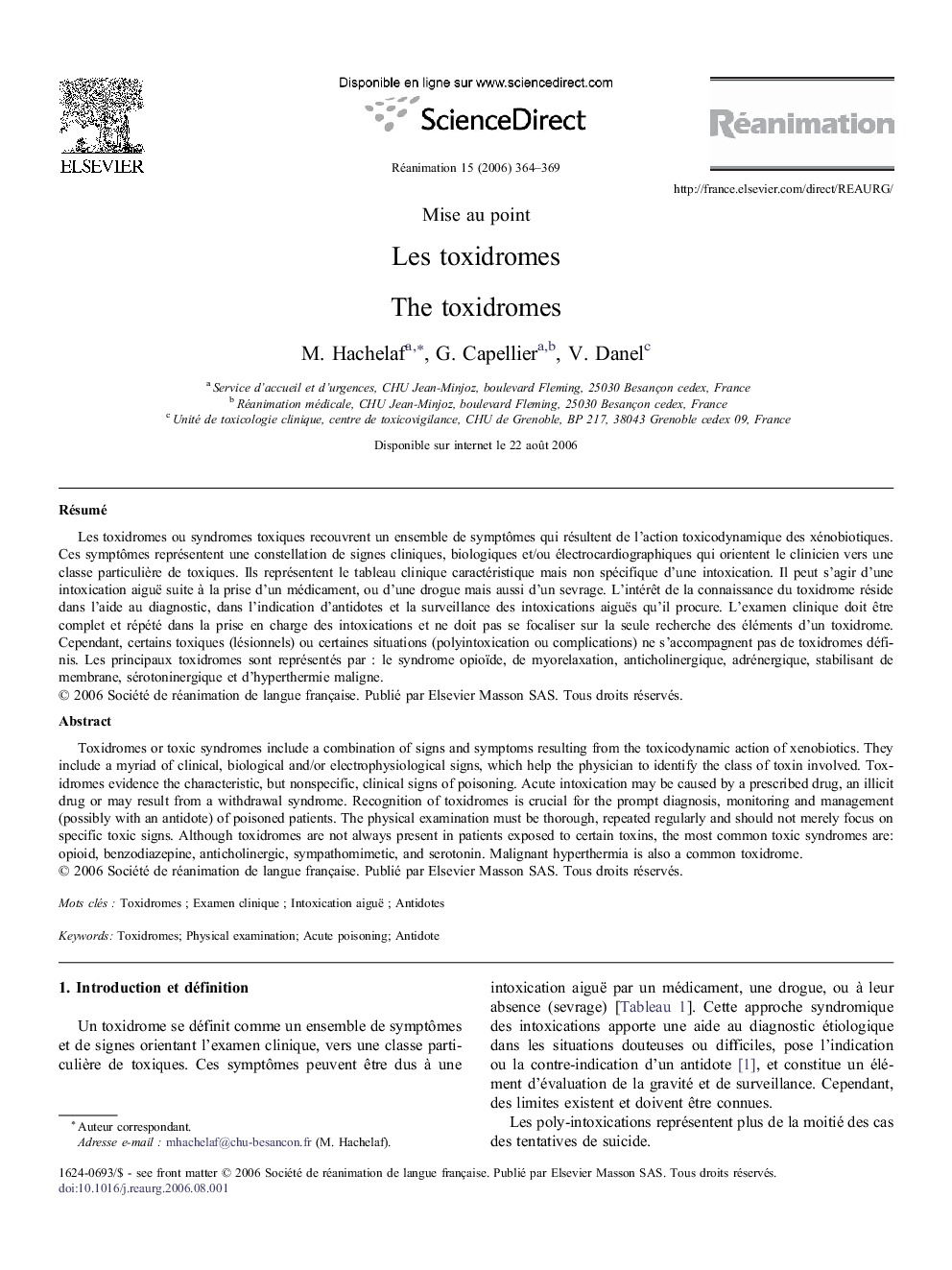| Article ID | Journal | Published Year | Pages | File Type |
|---|---|---|---|---|
| 2613119 | Réanimation | 2006 | 6 Pages |
Abstract
Toxidromes or toxic syndromes include a combination of signs and symptoms resulting from the toxicodynamic action of xenobiotics. They include a myriad of clinical, biological and/or electrophysiological signs, which help the physician to identify the class of toxin involved. Toxidromes evidence the characteristic, but nonspecific, clinical signs of poisoning. Acute intoxication may be caused by a prescribed drug, an illicit drug or may result from a withdrawal syndrome. Recognition of toxidromes is crucial for the prompt diagnosis, monitoring and management (possibly with an antidote) of poisoned patients. The physical examination must be thorough, repeated regularly and should not merely focus on specific toxic signs. Although toxidromes are not always present in patients exposed to certain toxins, the most common toxic syndromes are: opioid, benzodiazepine, anticholinergic, sympathomimetic, and serotonin. Malignant hyperthermia is also a common toxidrome.
Keywords
Related Topics
Health Sciences
Medicine and Dentistry
Emergency Medicine
Authors
M. Hachelaf, G. Capellier, V. Danel,
